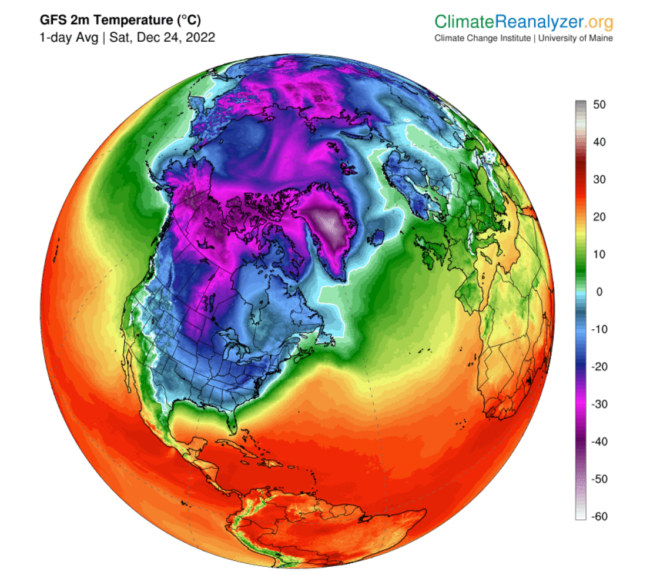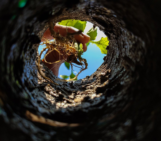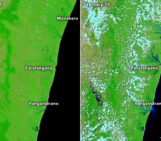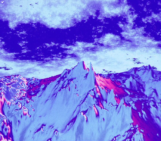
In December 2022, the United States experienced a severe cold spell, with record-low temperatures being recorded in many parts of the country. While it is natural for cold spells to occur, the question has arisen as to whether climate change is playing a role in the intensity and frequency of these events. There is ongoing debate among scientists about the relationship between climate change and cold spells. While it is clear that climate change is leading to more frequent and intense heat waves (Perkins-Kirkpatrick et al., 2020), the connection between climate change and cold spells is less straightforward.
Some recent research has suggested that climate change may be contributing to more intense and prolonged cold spells in certain regions, due to changes in atmospheric and oceanic circulation patterns. For example, a study published in the Journal of Geophysical Research: Atmosphere (Singh et al., 2016) found that human influence on climate change has increased the likelihood of extreme cold spells in the Eastern part of the United States, while causing warmer winter anomalies in the western states. Another study published in the journal Nature Communications (Cohen et al., 2018) found that climate change may be contributing to increasing the frequency and intensity of cold spells in the United States, but at the same time causing a warming of the Arctic region.
While other research has supported this finding, it is important to note that the relationship between climate change and cold spells is still an active area of research and there is ongoing debate about the extent to which climate change is affecting cold spells. Some scientists have argued that natural variability, rather than climate change, is the primary driver of extreme cold spells (Xie et al., 2019). Moreover, the IPCC-AR6 reports state with high confidence that “cold extremes would become less intense and less frequent, and cold spells would be shorter” also for North America.
Overall, it is clear that climate change is having a significant impact on our planet’s weather patterns, including extreme events such as heatwaves and cold spells. While the specific role of climate change in cold spells is still being debated, it is likely that climate change is playing a non-trivial role in the intensity and frequency of these events. Further research is needed to better understand the relationship between climate change and cold spells and to develop effective strategies for adapting to and mitigating these extreme events.
References:
Cohen, J., Pfeiffer, K., & Francis, J. A. (2018). Warm Arctic episodes linked with increased frequency of extreme winter weather in the United States. Nature communications, 9(1), 1-12.
IPCC: Summary for Policymakers, in: Climate Change 2021: The Physical Science Basis. Contribution of Working Group I to the Sixth Assessment Report of the Intergovernmental Panel on Climate Change, edited by: Masson-Delmotte, V., Zhai, P., Pirani, A., Connors, S. L., Péan, C., Berger, S., Caud, N., Chen, Y., Goldfarb, L., Gomis, M. I., Huang, M., Leitzell, K., Lonnoy, E., Matthews, J. B. R., Maycock, T. K., Waterfield, T., Yelekçi, O., Yu, R., and Zhou, B., Cambridge University Press, Cambridge, United Kingdom and New York, NY, USA, 3–32, 2021.
Perkins-Kirkpatrick, S. E., & Lewis, S. C. (2020). Increasing trends in regional heatwaves. Nature communications, 11(1), 1-8.
Singh, D., Swain, D. L., Mankin, J. S., Horton, D. E., Thomas, L. N., Rajaratnam, B., & Diffenbaugh, N. S. (2016). Recent amplification of the North American winter temperature dipole. Journal of Geophysical Research: Atmospheres, 121(17), 9911-9928.
Xie, Z., Black, R. X., & Deng, Y. (2019). Planetary and synoptic-scale dynamic control of extreme cold wave patterns over the United States. Climate Dynamics, 53(3), 1477-1495.



